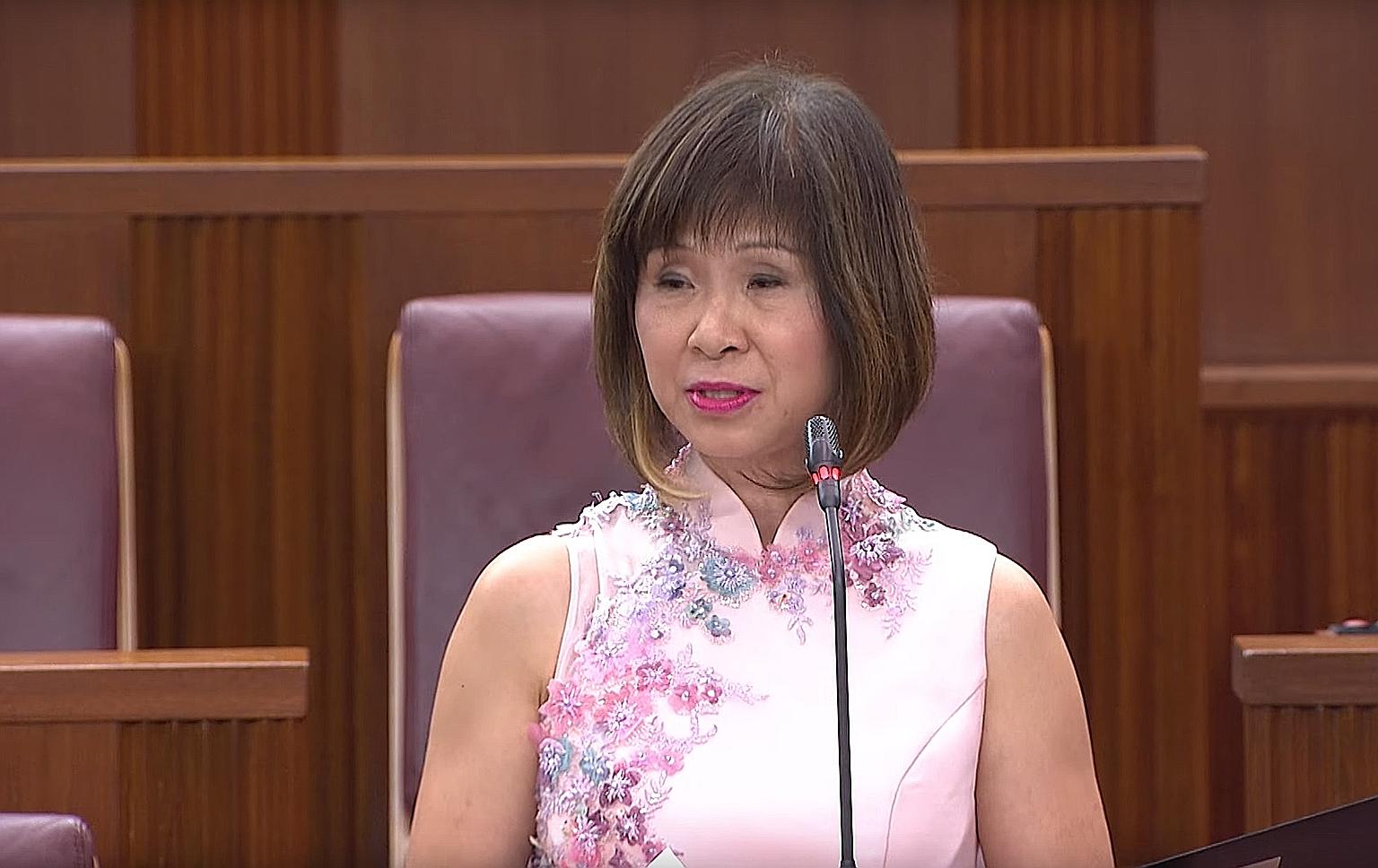PARLIAMENT: Debate on ministries’ budgets
Tackling excessive plastic bag use: No levy in the works
NEA exploring a more sustainable approach than imposing a fee or ban, says Amy Khor
Sign up now: Get ST's newsletters delivered to your inbox

MORE SUSTAINABLE WAY: In Singapore, a more sustainable approach is to tackle the excessive consumption of all types of disposables. - DR AMY KHOR, Senior Minister of State for the Environment and Water Resources, on why her ministry is not implementing a plastic bag levy.
There are no plans to introduce a levy on plastic bags, and replacing them with degradable or paper bags may not be greener, Dr Amy Khor, Senior Minister of State for the Environment and Water Resources, said yesterday.
"Imposing a charge or ban on disposable plastic bags and substituting them with other types of disposable bags is unlikely to improve environmental outcomes," she said during the debate on her ministry's budget.
Every type of disposable bag, be it a degradable bag or a paper bag, affects the environment, be it through carbon emissions, heavy water use or significant land clearance, she said, citing a study commissioned by the National Environment Agency (NEA).
Dr Khor was replying to a question from Ms Cheng Li Hui (Tampines GRC), who had asked if the ministry would consider imposing a levy on plastic bags to reduce their excessive use.
The NEA study had looked at the environmental impact of disposables, including carrier bags.
An estimate from the study is that the regular use of a reusable bag over a year could replace the use of 125 single-use plastic bags, or 52 single-use paper bags. Similarly, it also estimated that the regular use of one reusable container over five years could replace the use of 3,650 single-use plates.
Some retailers in Singapore claim that degradable bags are greener alternatives to plastic bags and offer them instead. But the study, led by National University of Singapore scientist Kua Harn Wei, also found that both types of bags require the same amount of resources to make.
Both are equally bad for the environment when incinerated.
Noting that no levy on plastic bags is being planned, Dr Khor said these bags are necessary for the responsible and hygienic bagging of waste, given the country's moist, tropical climate.
"In Singapore, a more sustainable approach is to tackle the excessive consumption of all types of disposables," she added, saying her ministry is working with stakeholders to minimise the use of plastic bags and disposables.
She said, for example, that food delivery company Foodpanda is working on a trial where customers can opt out of disposable cutlery use when ordering food.
Environmental group Zero Waste Singapore last year launched a campaign to encourage consumers to take reusable bags or containers with them to eateries and supermarkets in return for discounts or free gifts.
On its part, the NEA will explore ways to reduce the use of disposables. Hawkers at new hawker centres managed by the NEA or by NEA-appointed managing agents - such as those in Our Tampines Hub and Yishun Park - have already been prohibited from providing disposables to patrons who dine in.
In line with Singapore's Zero Waste vision, Dr Khor outlined plans to reduce packaging waste.
Last year, Singapore produced about 557,000 tonnes of packaging waste - a third of domestic waste and enough to fill more than 1,000 Olympic-size swimming pools.
Dr Khor noted that the voluntary Singapore Packaging Agreement has cumulatively reduced almost 39,000 tonnes of packaging waste since its inception in 2007.
More will be done to reduce packaging waste at source, she said. "By 2021, we will mandate that businesses report on the type and amount of packaging they put on the market and their plans for reduction."


